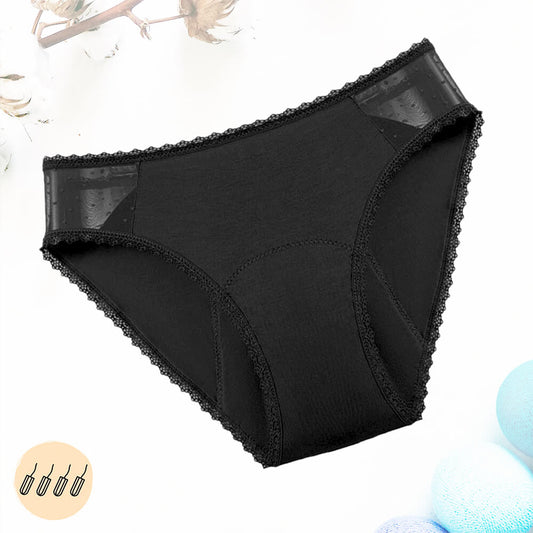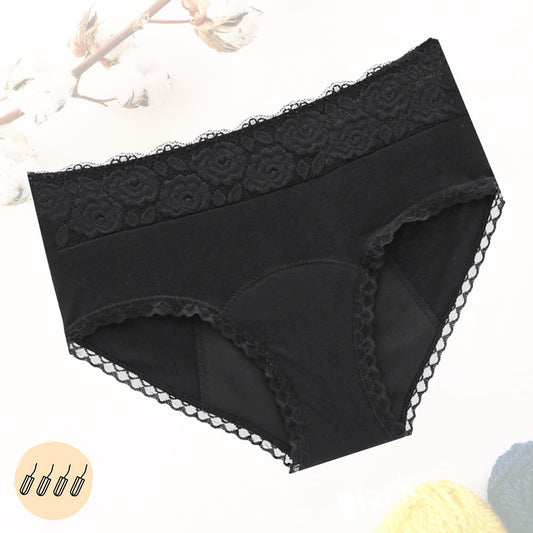
The relationship between sexual activity and the menstrual cycle raises many questions and beliefs. Among them, the idea that it would be possible to trigger your period through sexual intercourse is the subject of varied discussions. This article aims to demystify this belief and remind people of the importance of understanding the physiological processes that govern the menstrual cycle.
Understanding the Menstrual Cycle
The menstrual cycle is governed by complex hormonal fluctuations, orchestrated by the hypothalamus, the pituitary gland, and the ovaries. These hormones prepare the body for possible pregnancy each month, and the lack of fertilization results in the shedding of the uterine lining, known as menstruation or periods. This natural process varies from one woman to another in terms of duration, regularity and symptoms.The Impact of Sexual Activity on the Cycle
Sexual activity, although it can influence physical and emotional well-being, has no direct power on the onset of menstruation. Indeed, sexual intercourse can stimulate an increase in blood flow in the pelvic region and induce a feeling of overall relaxation. This muscle relaxation and improved blood circulation may, in some women, coincide with the expected onset of menstruation, especially if it is imminent.
However, it is essential to understand that this coincidence does not constitute causation. Menstruation is the result of shedding of the uterine lining in the absence of pregnancy, a process regulated by complex hormonal mechanisms that are not directly influenced by sexual activities.
Myths around cycle control during lovemaking
It is essential to dispel the idea according to which make love during menstruation can exert control or cause significant changes to the menstrual cycle. This belief, well-entrenched in some discussions, often leads to unrealistic expectations and inaccurate interpretation of reproductive health. In reality, the menstrual cycle is the result of a complex tangle of hormonal signals, precisely orchestrated by the body, which prepare the body for possible pregnancy.
Hormones such as estrogen and progesterone play a central role in this process, influencing everything from ovulation to the shedding of the uterine lining. Their secretion and regulation are finely tuned and respond to well-established internal mechanisms, which are not directly modifiable by external factors such as sexual behavior. So the idea that sex can start or delay your period is based on a simplified understanding of reproductive biology.
This belief can also mask the importance of monitoring other factors that can influence the cycle, such as stress, weight changes, or certain medical conditions. Misattributing the power to change the menstrual cycle to sexual activity may overlook warning signs of underlying health problems that require the attention of a healthcare professional.
Additionally, this idea reinforces taboos and misunderstandings around menstruation, contributing to the stigma and discomfort many women already feel around their periods. By confronting and deconstructing these myths, we can foster a healthier, more informed approach to sexuality and menstrual well-being.
Tips for Fulfilling Sexuality During Your Period
To promote a fulfilling intimate life, it is preferable to adopt a caring and respectful approach towards your body and its natural cycles, instead of seeking to artificially alter the menstrual cycle. Here are some suggestions for a fulfilling intimate life:- Frank communication and sincere: The essence of a successful intimate relationship is based on frank communication with your partner. Openly expressing one's desires, fears and limits helps to establish a climate of trust and mutual respect, conducive to deeper and more rewarding intimacy.
- Cleanliness and careful preparation: It is crucial to prepare the environment and yourself for a clean and enjoyable experience. Using protective sheets, intimate wipes, or implementing specific hygiene precautions can ease concerns and increase everyone's well-being.
- Discovery of multiple sources of pleasure: The menstrual period should not be an obstacle to intimate development. Exploring various forms of rapprochement and satisfaction, such as hugs, sensual massages, oral-genital foreplay (with protection if necessary) or the use of erotic toys, can enrich the intimate experience and consolidate complicity with his partner.




